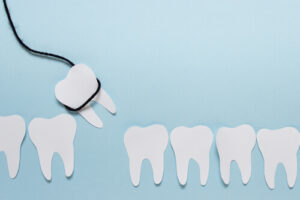Embarking on the recovery journey after wisdom teeth removal can be daunting, especially regarding nutrition. It’s crucial to choose the right foods that won’t aggravate the healing site. This article will introduce you to a carefully curated list of soft foods to eat after wisdom teeth removal, designed to ensure your comfort and aid in the healing process. From the silky smoothness of pureed soups to the cool relief of yogurt, we’ll guide you through a variety of options that are not only gentle on your mouth but also appealing to your taste buds.
Whether you’re a food lover or a convenience seeker, this list will help you navigate your dietary needs during recovery without compromising flavor or nutrition. Stay tuned to learn how to eat foods that satisfy your hunger and support your healing with our top picks for post-operative eating.
Soft foods to eat after wisdom teeth removal
After the removal of wisdom teeth, it’s essential to choose your diet with care to facilitate healing and avoid discomfort. Opting for soft foods that require minimal chewing can help prevent damage to the surgical site and ensure a smoother recovery. Below is a curated list of soft foods ideal after wisdom teeth removal, the best foods designed to nourish without compromising the healing process.
- Greek Yogurt: Rich in protein and has a smooth consistency, Greek yogurt can be soothing and is easy to consume without chewing.
- Mashed Potatoes: Soft and easily malleable, mashed potatoes can provide comfort and satiety without irritating sensitive areas in the mouth.
- Scrambled Eggs: Gentle on the mouth and rich in nutrients, scrambled eggs are an excellent choice for maintaining protein intake.
- Cottage Cheese: This dairy product is not only soft and easy to eat but also high in protein and can be a part of a balanced post-surgery diet.
- Smoothies and Protein Shakes: These can be packed with essential vitamins and minerals, and you can sip them without chewing.
- Blended Soups: Soups pureed to a smooth consistency can be hydrating and nourishing while gentle on the extraction sites.
- Applesauce: Without the skin and fibers of a whole apple, applesauce can provide some of the same nutritional benefits without chewing.
- Instant Oatmeal: Cooked until very soft, instant oatmeal can be a warm, comforting food that’s easy to consume.
- Mashed Bananas: Their soft texture and rich nutrient profile make mashed bananas an ideal food while recovering from oral surgery.
- Bone Broth: It’s hydrating and can provide nutrients and minerals essential for healing.
- Puddings and Custards: These can satisfy a sweet tooth without chewing, making them perfect for a post-extraction treat.
By adhering to a diet of soft foods after wisdom teeth removal, patients can significantly reduce pain, minimize the risk of complications, and provide their bodies with the necessary nutrients to heal effectively. It’s always best to follow the specific recommendations of your dental professional and to report any unusual or persistent symptoms immediately.
Foods to avoid after wisdom tooth extraction
Wisdom tooth extraction is a significant dental procedure that requires careful post-operative care to ensure proper healing. One of the critical aspects of recovery from wisdom tooth removal is dietary adjustments, particularly knowing which foods to avoid to prevent irritation or harm to the extraction site. Steering clear of certain foods can help maintain the integrity of the surgical area and avoid complications such as infection or dry socket.
- Crunchy and Crumbly Foods: Hard Foods, crunchy or crumble easily, like chips, popcorn, or hard pretzels, can lodge into the extraction site, leading to irritation or infection.
- Chewy Foods: Items that require extensive chewing, such as gum, beef jerky, or chewy candy, can exert undue pressure on the healing gums and may disrupt the formation of blood clots.
- Spicy Foods: Spicy dishes and acidic foods like citrus fruits can aggravate the extraction site, causing discomfort and slowing the healing process.
- Hot Foods and Beverages: Very hot foods and drinks should be avoided as they can dissolve or displace the blood clot essential for healing, increasing the risk of developing a dry socket.
- Alcoholic Beverages and Carbonated Drinks: Alcohol can interfere with the healing process, and the carbonation in sodas can lead to the dislodgement of the blood clot.
- Hard Fruits and Vegetables: Raw vegetables and hard fruits require significant chewing effort, which can be painful and potentially harmful post-extraction.
- Sticky Foods: Foods with a sticky consistency, such as caramel or certain pastries, can pull on the extraction site and are best avoided until the area has sufficiently healed.
In summary, after wisdom tooth extraction, it is crucial to avoid foods that pose a risk to the healing process. By following these guidelines, patients can help ensure a smoother recovery and return to their regular diet as soon as it is safe. Always consult with your oral surgeon or dentist for personalized advice tailored to your specific situation.
How long after wisdom teeth removal can I eat normally?

After wisdom teeth removal, the timeline for returning to a normal diet can vary depending on the individual’s healing process. Generally, patients can start reintroducing more solid foods into their diet after one week, gradually transitioning back to their regular diet over the next few weeks.
By the end of the second week, many people can eat normally without significant discomfort. However, it’s important to follow the guidance of your oral surgeon or dentist, as they will provide personalized advice based on how well your recovery is progressing.
Always monitor for any pain or complications, and if in doubt, consult with your healthcare provider before making any significant changes to your post-operative diet.
Tips to enhance the recovery process after wisdom teeth extraction
Recovering from wisdom teeth extraction requires careful attention to post-operative care to ensure a smooth and swift healing process. Here are some tips to enhance the recovery wound healing process after wisdom teeth extraction:
- Follow Post-Operative Instructions: Adherence to the dentist’s or oral surgeon’s post-operative care instructions is paramount. This includes guidelines on managing swelling, bleeding, and potential infection at the extraction site.
- Maintain Oral Hygiene: Keeping the mouth clean is crucial. Gently rinse with salt water or a prescribed mouthwash to reduce the risk of infection without disturbing the blood clots that aid in healing.
- Apply Ice Packs: To minimize swelling, apply ice packs to the cheek area in 15-minute intervals for the first 24 hours post-extraction.
- Eat Soft Foods: Stick to a diet of soft foods such as yogurt, applesauce, and mashed potatoes to avoid irritation. Gradually reintroduce semi-soft foods as comfort allows.
- Stay Hydrated: Drink plenty of water to stay hydrated, but avoid using a straw, as the suction can dislodge the blood clots that are essential for healing.
- Rest Adequately: Ensure plenty of rest with your head elevated to reduce swelling and promote healing. Avoid strenuous activities for at least a week.
- Manage Pain and Inflammation: Take prescribed pain relievers and anti-inflammatory medications as directed to manage discomfort and swelling.
- Avoid Tobacco and Alcohol: Refrain from smoking and consuming alcohol, as these can hinder the healing process and increase the risk of complications.
- Monitor for Complications: Be vigilant for signs of dry socket, infection, or prolonged bleeding, and contact your healthcare provider if you suspect any complications.
By following these tips and maintaining open communication with your dental care provider, you can enhance the recovery process after wisdom teeth extraction and return to your normal activities with minimal disruption.
Why am I so hungry after having wisdom teeth removed?

Post wisdom teeth extraction, many patients report a significant increase in hunger. Understanding the reasons behind this surge in appetite can help manage post-operative care and maintain comfort during the recovery period.
Increased Metabolic Demand:
The body’s natural healing process after surgery boosts metabolism, requiring more energy and potentially increasing hunger.
Dietary Restrictions:
Post-operative dietary instructions typically limit patients to soft foods, which may be less filling and lower in calories, leading to more frequent feelings of hunger.
Reduced Chewing and Satiety:
Chewing less due to a soft food diet means fewer signals to the brain to release satiety hormones, which can help you feel full.
Calorie-Dense vs. Volume Foods:
Soft foods recommended post-surgery, like broths or gelatin, are not as calorie-dense as solid foods, causing quicker digestion and a faster return of hunger.
Physical Activity Changes:
A decrease in usual physical activity following surgery can disrupt regular hunger cues and appetite control.
Managing Increased Hunger:
- Opt for nutrient-dense soft foods high in protein, such as Greek yogurt, to help stay fuller for longer.
- Implement smaller, more frequent daily meals to manage hunger and ensure steady energy levels.
- Stay hydrated, as dehydration can often be mistaken for hunger.
Consultation and Follow-Up:
Always adhere to the dietary guidelines provided by your oral surgeon and consult them if hunger is causing discomfort or leading to overeating.
Conclusion
In conclusion, navigating your diet after wisdom teeth removal doesn’t have to be challenging. By adhering to a list of soft foods to eat after wisdom teeth removal, you can ensure a comfortable recovery while enjoying various nutritious meals. Foods like smoothies, mashed potatoes, and scrambled eggs provide comfort and nourishment without risking irritation to the healing surgical sites. Remember to follow your dentist’s advice, avoid hard or sticky foods, and prioritize gentle nutrition. As you heal, you can look forward to gradually reintroducing your favorite foods, making this list an essential stepping stone to a full and speedy recovery.
References
What to Eat After Wisdom Teeth Removal
https://www.healthline.com/health/what-to-eat-after-wisdom-teeth-removal
What to eat after wisdom teeth removal
https://www.medicalnewstoday.com/articles/321300
Dental surgery and recovery
https://www.guysandstthomas.nhs.uk/health-information/dental-surgery-and-recovery
What to eat after wisdom teeth removal
https://www.livescience.com/what-to-eat-after-wisdom-teeth-removal
How Are Wisdom Teeth Removed?
https://www.verywellhealth.com/how-are-wisdom-teeth-removed-1059378
